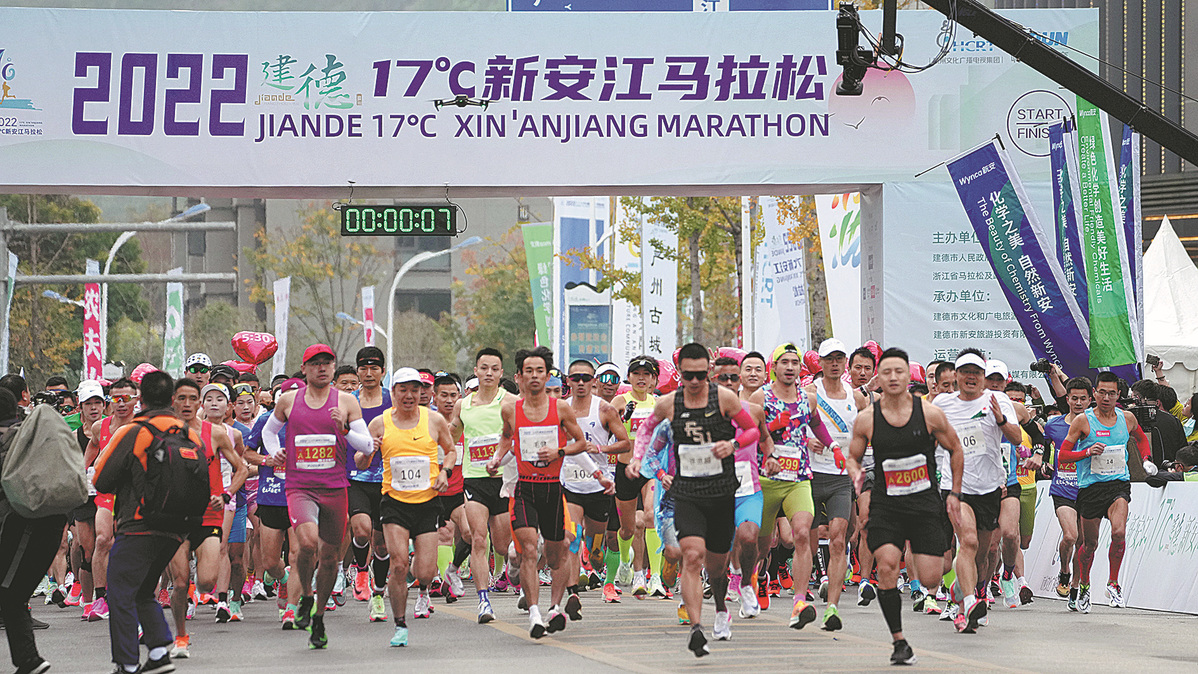Marathon runners put endurance to the test again


Volunteer signs up
Zhu Sihan, who is studying for a postgraduate statistics degree at the University of Chinese Academy of Sciences, is a newcomer to marathons — only joining the academy's running club in May.
Encouraged and inspired by runners at the club, the 23-year-old applied last month to be a volunteer at the Beijing Marathon — being accepted three weeks before the event to supply athletes with their self-prepared beverages on race day.
Zhu said the 15 drink replenishment stations for the race were situated every 2.5 km along the course.
"As volunteers, we usually hand drinks to competitors, but due to concerns over epidemic prevention and control, the athletes picked up drinks themselves this year," said Zhu, who was positioned at a drinks station near the finish line.
Detailed epidemic prevention guidelines were provided for the athletes, volunteers and others involved with the race. A page of COVID-19 prevention guidelines was also featured in the program for this year's Beijing Marathon.
According to the guidelines, face masks should be worn when athletes took public transportation to the race, and before the event started. Safe social distancing was required at the starting point.
The guidelines also stated that the organizing committee would distribute masks to those finishing the race, adding that keeping a safe social distance was also needed in the finish line area.
They suggested that competitors should not run while wearing masks, adding that masks should not be randomly discarded.
Guo Ping, a former member of the Chinese women's marathon team who now coaches amateur marathon runners, said: "Wearing a mask during a marathon is not good for your heart and lungs. Surgical masks have several layers, and you can't breathe properly if you wear them during a race. So I don't suggest that runners wear masks during competition, but that they should wear them before and after a race."
Briefed on epidemic prevention and control rules, volunteers had to submit negative nucleic acid test results within 24 hours of starting their duties. They needed to be fully vaccinated and had to wear surgical masks indoors and outdoors.
In case of emergencies, volunteers had to report directly to the person in charge of the Beijing Marathon Organizing Committee through the head of their voluntary group. For personal safety incidents, they were told to either dial 120 or go to a nearby medical assistance station.
To download certificates showing their time, average speed, and finishing position, athletes were reminded to complete nucleic acid tests within 48 hours of the race ending.
























